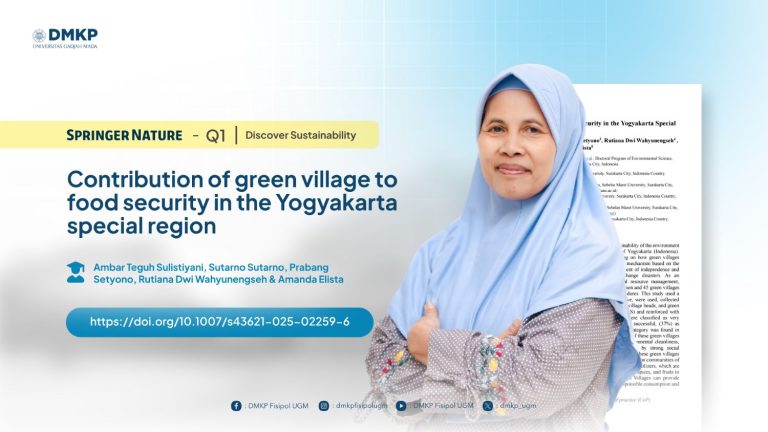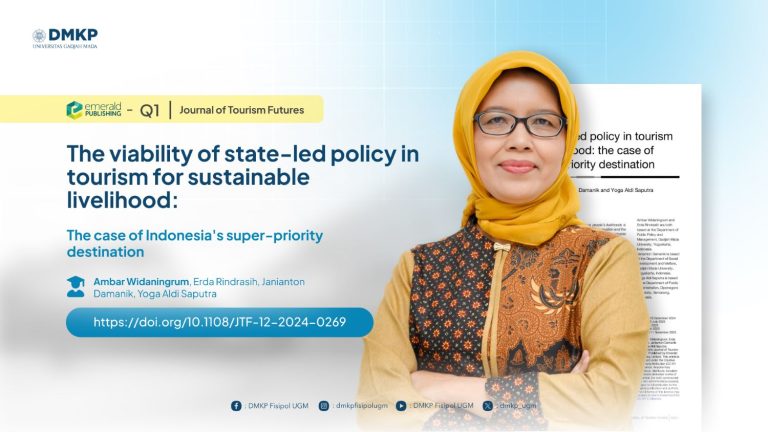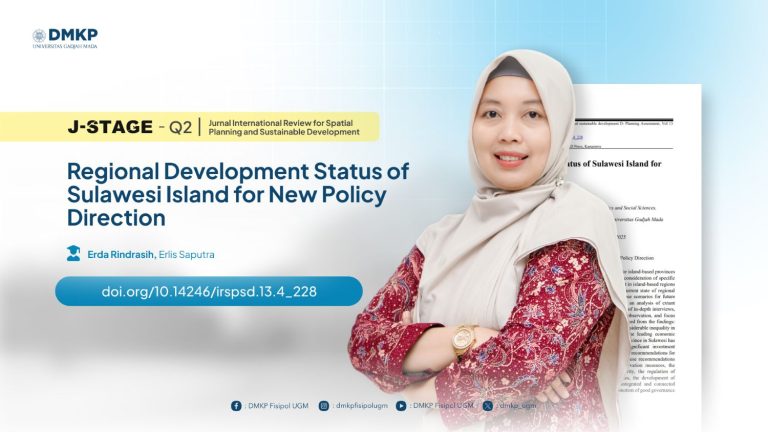Yogyakarta, May 27, 2025 — The Department of Public Policy and Management (DMKP), Faculty of Social and Political Sciences (FISIPOL) Universitas Gadjah Mada (UGM), in collaboration with Residential College 4 (RC4) National University of Singapore (NUS), has successfully conducted the Southeast Asia Friendship Initiative (SFI) 2025 program. The nine-day program, held from May 17 to 25, 2025, served as a collaborative platform for students from both universities to explore water governance, climate change, and community empowerment in urban areas of Indonesia, particularly in Yogyakarta and Jakarta.
A total of 22 students from NUS, along with facilitators from DMKP students, participated in the program, accompanied by Dr. Erda Rindrasih, Dr. Ario Wicaksono, Dr. Dede Puji Setiono, and Dr. Navarun Varma (NUS). The activities combined field observations, discussions with key stakeholders, and student presentations.

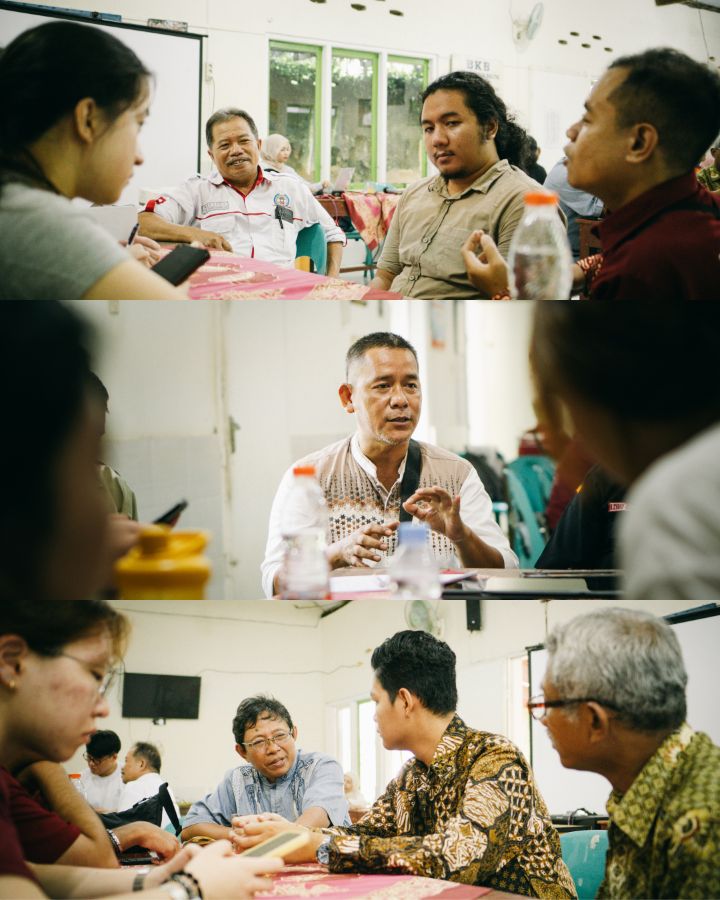



Activities in Yogyakarta: Exploring the Complexity of the Kali Code River
The series of activities in Yogyakarta began on May 17, 2025, with interviews and focus group discussions (FGDs) with local residents and community members in the Rusunawa area and the settlements along the Kali Code riverbank. This was followed by field observations on May 18, 2025, in areas undergoing slum revitalization, settlements on Sultan Ground land, and flood-prone neighborhoods along Kali Code.
On May 19, 2025, students presented their findings on the environmental issues faced by the area. Their observations included the discharge of household greywater directly into the river, leading to pollution; increased rainwater runoff due to impermeable surfaces; soil erosion caused by human activities; and deteriorating housing conditions due to extreme density and poor sanitation. NUS students also highlighted social issues such as overlapping use of limited space for parking, laundry, and social activities, along with the risks of closely built, unplanned structures.
The student presentations opened the floor for discussions with local government agencies. The Public Works, Housing, and Energy and Mineral Resources Agency (DPUP-ESDM) of Yogyakarta discussed strategies for improving water quality, integrating urban development with environmental conservation, and enhancing community resilience along riverbanks.
The Public Works, Housing, and Settlement Areas Agency (DPUPKP) of Yogyakarta City then presented their settlement restructuring programs, particularly the M3K (Mundur, Munggah, Madhep Kali) program, which reclaims riverbank space for essential infrastructure, and the MAHANANNI program (Decent Housing and Settlement Towards a Civilized Community) focusing on land consolidation to build vertical housing and orderly settlements. Both programs aim to create safe, livable, and environmentally friendly neighborhoods.
The Yogyakarta discussions concluded with a presentation from the Yogyakarta City Regional Disaster Management Agency (BPBD), which emphasized the importance of clean water management in supporting community resilience in disaster-prone areas.


Activities in Jakarta: Exploring Coastal Reclamation and Kali Ciliwung
On May 22, 2025, the group continued their field study in Jakarta, focusing on coastal reclamation issues in North Jakarta. The activities began with discussions with local officials regarding the reclamation project, followed by a direct observation by boat to view the Giant Sea Wall (GSW) project, part of the National Capital Integrated Coastal Development (NCICD). The GSW not only functions as a sea barrier but also integrates land reclamation, drainage systems, and coastal area management.
Students also engaged in discussions with the Ministry of Public Works and Public Housing (PUPR) regarding the integration of the GSW project with urban spatial planning, relocation of informal settlements, and the development of safe, sustainable vertical housing.
On the following day, discussions continued with the Jakarta Housing and Settlement Agency (DPRKP), focusing on strategies for managing riverbank settlements. Topics included community involvement in planning, housing standards, and the monitoring and evaluation of relocation programs.
Students then visited the downstream area of Kali Ciliwung in Condet and held direct discussions with local communities regarding the differences between river normalization and naturalization approaches. The Jakarta fieldwork concluded with visits to relocated settlements, non-relocated neighborhoods, and Rusunawa housing complexes where relocated residents currently live.
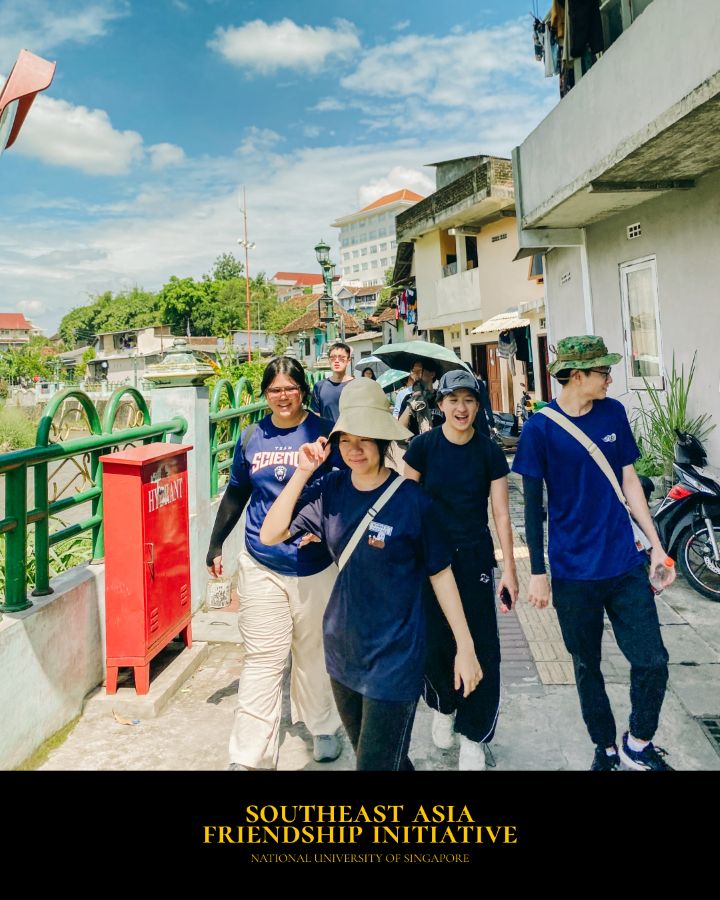



The Southeast Asia Friendship Initiative 2025 is expected to strengthen academic collaboration between UGM and NUS while encouraging research-based solutions to various water governance, settlement, and climate change issues in Southeast Asian urban areas. The program also provided students with valuable opportunities to enhance their analytical skills, field research abilities, and cross-cultural collaboration in facing global challenges.
Writer: Fahri
Photos: Fahri, Fauzi, Vika


